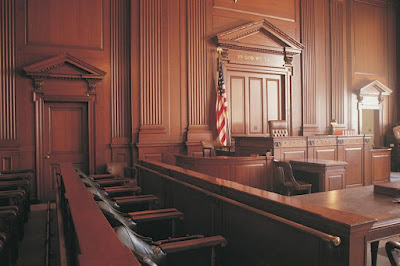LAHORE: After 21 years of a fierce legal battle, a juvenile convict was finally granted reprieve of undergoing life imprisonment instead of facing the death penalty by the Lahore High Court (LHC).
In a landmark judgment, a two-member divisional bench of the LHC allowed the petition filed by Justice Project Pakistan and converted Iqbal’s death sentence into life imprisonment.
The judgment authored by LHC Chief Justice Muhammad Qasim Khan and Justice Asjad Javaid Ghural relied on the Presidential Notification F8/41/2001-Ptns, the United Nations Convention on the Rights of the Child (UNCRC) Article 37 and the UN International Covenant of Civil and Political Rights (ICCPR) Article 6.
The judgment reads, “Firstly the international legislation and secondly our domestic legislation impose a clear ban on the infliction of death penalty on an accused under the age of 18 years, thus, the claim of the petitioner to seek benefit which otherwise was fully available to him under the policy, having the force of law, could not have been denied.”
The accused was 17 years old at the time of his arrest.
The teen was held with four other accused in 1998 for fatally shooting a man in Mandi Bahauddin.
The following year he was sentenced to death even though an ossification test confirmed his age to be 17 at the time of offence.
The juvenile convict was the only one granted death penalty whereas all the other co-accused in the case were sentenced to 10-year imprisonment.
In 2004, the victim’s family forgave Iqbal and withdrew their petition but the Gujranwala Anti-Terrorism Court refused to accept the plea due to the non-compoundable nature of the offence.
Instead of exercising its powers to commute Iqbal’s death sentence according to the presidential notification, in March 2016 the home department forwarded a mercy petition on his behalf to the president.
That too was rejected and a death warrant was issued scheduling his execution on March 30, 2016 only to be stayed after a review petition was filed in the Supreme Court.
Sarah Belal, Executive Director of Justice Project Pakistan, said, “Finally, it is the LHC that has lifted the sword unjustly hanging over Muhammad Iqbal for so long. A teenager should have never spent over 20 years on death row, to begin with.”
Source: tribune.com.pk, Staff, June 10, 2020
⚑ | Report an error, an omission, a typo; suggest a story or a new angle to an existing story; submit a piece, a comment; recommend a resource; contact the webmaster, contact us:
deathpenaltynews@gmail.com.
Opposed to Capital Punishment? Help us keep this blog up and running! DONATE!
"One is absolutely sickened, not by the crimes that the wicked have committed,
but by the punishments that the good have inflicted." -- Oscar Wilde












